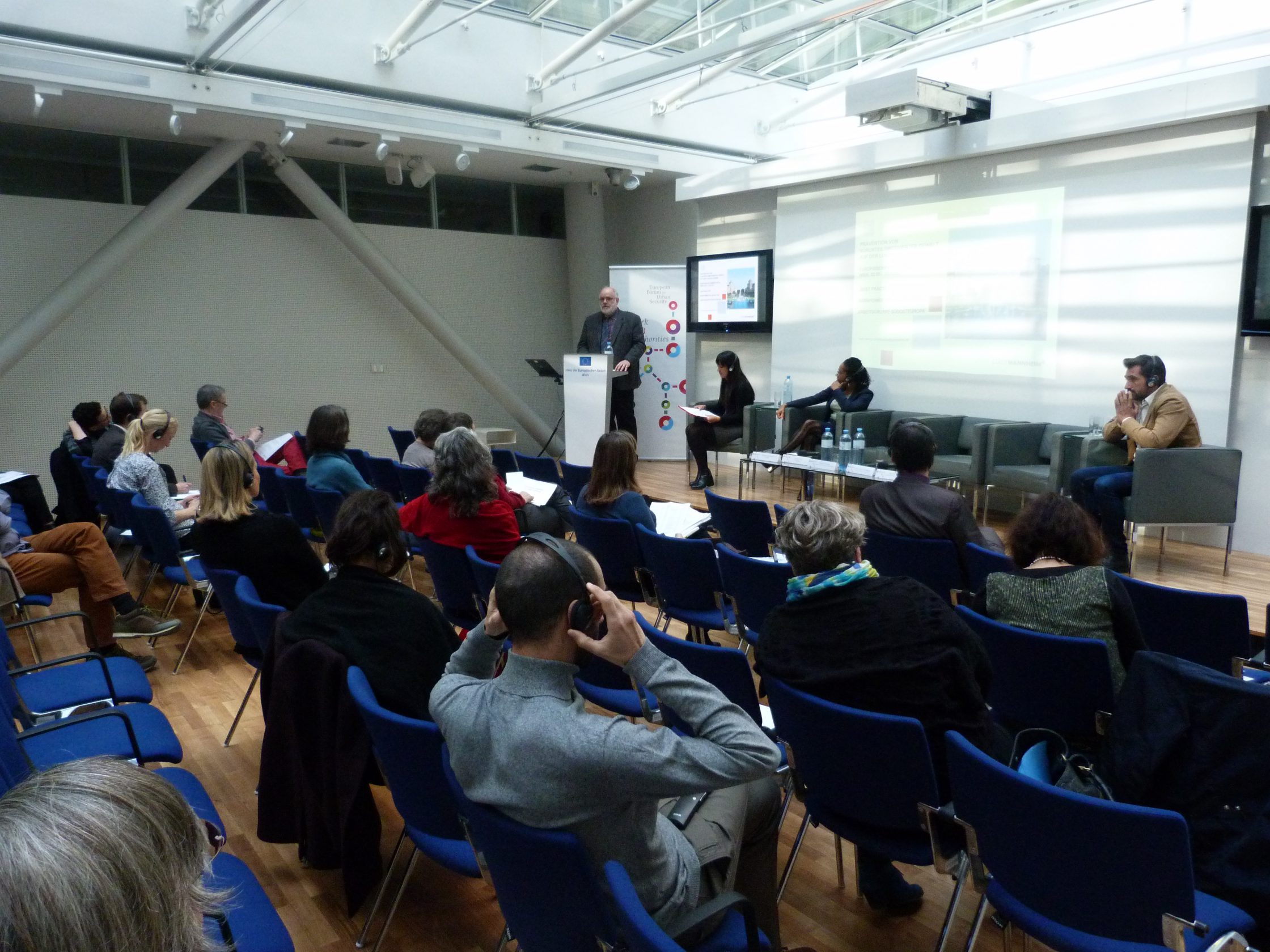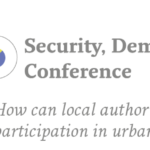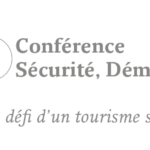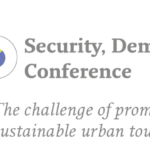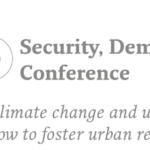Vienna, Austria, March 2017 – In the framework of the “Just and Safer Cities for All” (JUST) project co-funded by the European Union’s Rights, Equality and Citizenship programme, Efus organised a two-day seminar on “Preventing and Countering Discriminatory Violence at the Local Level”, on 2 and 3 March, in Vienna, Austria. This initiative was officially supported by the municipality of Vienna and the European Commission’s representation in Austria.
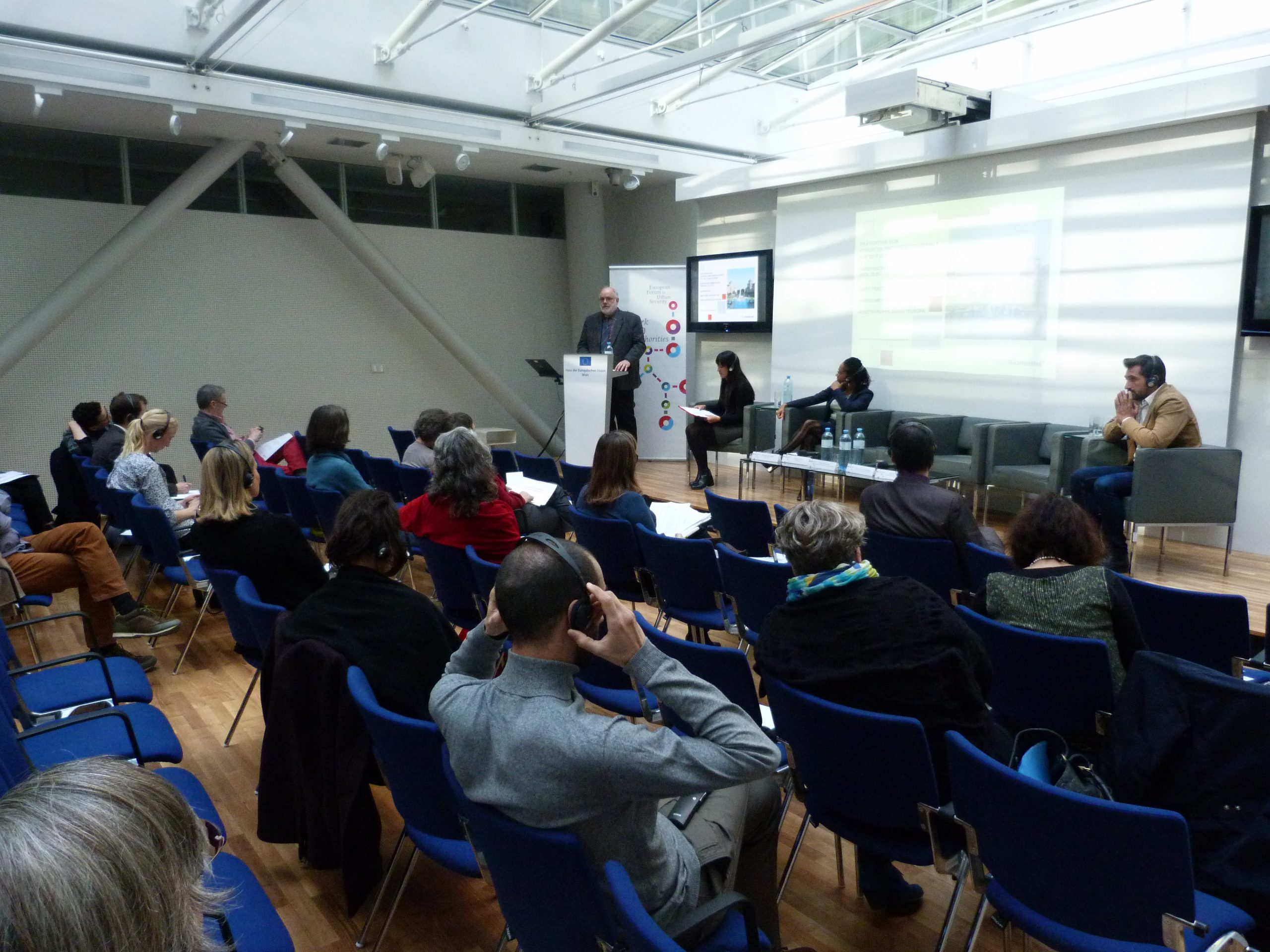
Four field visits of local initiatives against discrimination and intolerance
More than 100 participants, elected officials, representatives of local authorities, magistrates, European institutions, civil society organisations, universities and other research institutions as well as private enterprises gathered at the House of the European Union (Haus der Europäischen Union). The aim was to discuss strategies against discrimination, intolerance, hate and related forms of violence in Europe and to develop ideas on how to improve local approaches to prevent and counter such phenomena.
The seminar started with four study visits of local initiatives implemented in Vienna: an association providing support to victims of racism (ZARA); Vienna’s intervention centre supporting victims of gender-based violence; the city’s human rights office, and a MagDas hotel, an initiative helping refugees to integrate the labour market.
Following these, the seminar started in earnest with presentations by Shams Asadi (Human Rights Officer, City of Vienna), Petra Polgar (EC representation in Austria) and Erich Marks (interim President of Efus), who all stressed how important it is for local authorities to be involved in efforts against discrimination and for them to cooperate with a variety of local stakeholders. They also commended the European Commission’s support for a project on such an important topic.
Discriminatory violence from a European perspective
The first day of the seminar was dedicated to discussing discriminatory violence from a European perspective. A keynote presentation by Prof. Jon Garland introduced the concepts of discriminatory violence and hate crime, discussed current forms and phenomena of violence motivated by hate and intolerance in Europe, and concluded with ten ideas on how to improve help for victims of hate and intolerance on the municipal level.
Then, a panel discussion on “Countering Discriminatory Violence in Europe – Challenges and Priorities” was introduced by Petra Polgar (Haus der EU) and moderated by Moritz Konradi (Efus). The panelists Gerald Schöpfer (Council of Europe’s European Commission against Racism and Intolerance, ECRI), Niraj Nathwani (European Union Fundamental Rights Agency, FRA) and Larry Olomofe (OSCE Office for Democratic Institutions and Human Rights, ODIHR) discussed European strategies against hate and intolerance. They stressed the need for intensified European cooperation to counter discrimination and violence and protect the fundamental rights of minorities in Europe as well as the importance of local initiatives. They discussed their respective institutions’ policies and activities against the backdrop of recent political developments in Europe and answered numerous questions from the audience.
Attendees then gathered in the evening for a dinner offered by the Mayor and Governor of Vienna, Michael Häupl, and hosted by Peter Florianschütz, member of Vienna’s City Council.
Local approaches to countering discriminatory violence
The second day of the seminar was focused on local approaches to countering discriminatory violence. In a panel session moderated by Pilar De La Torre (Efus), local practitioners presented examples of good practice.
Natasha Plummer and James Tate (the Mayor’s Office for Policing And Crime (MOPAC, London, UK) presented the initiatives to counter hate crime taken as part of the city’s global strategy such as the app that encourages victims and witnesses to report crime.
Patrick Charlier (Interfederal Centre for Equal Opportunities, UNIA, Brussels, Belgium), explained how it supports local police and prosecutors to act more efficiently in cases of discriminatory violence.
David Martín (Diversity Unit of Madrid Police, Spain) highlighted that the very establishment of this police unit shows the city’s determination to fight discrimination. He also stressed the importance of improving relationships between police and citizens.
Hans-Georg Schuhmacher (Municipal Crime Prevention Unit, City of Mannheim, Germany) presented the “Coalition for Diversity”, a network fostered by the city to encourage local stakeholders to work together to recognise the diversity of the local communities, counter discrimination and promote equal opportunities.
Workshop on specific forms of discrimination
Participants then took part in a workshop on specific forms and phenomena of discriminatory violence, organised in four groups moderated by the project’s experts and partners. Topics were discriminatory violence against migrants and refugees (Rui Costa, Portuguese association for victim support, APAV), women (Birgitt Haller, Institute for Research on Conflicts, IKF, Austria), LGBT persons (Angela Schwarz, Vienna Anti Discrimination Office for Same Sex and Transgender Lifestyles, WASt) and people with disabilities (Gertraud Kremsner, University of Vienna).
The four groups worked on guidelines to counter this type of violence at the local level with the support of local authorities, and stressed in particular the need for multi-stakeholder initiatives at local level; increased awareness-raising activities; the need to have mayors and local elected officials more visibly committed to strategies against hate and intolerance; accessible and community-based victim support services; easier reporting procedures to encourage victims and witnesses to come forward, and efforts to provide trainings for professionals such as law enforcement specialists and journalists on how to deal with cases of discriminatory violence and hate crime at the local level.
Proposals to be further discussed at the “Security, Democracy & Cities” international conference
In a final roundtable moderated by Efus’ Executive Director, Elizabeth Johnston, local authority representatives picked up on the suggestions made by the workshop groups and reflected on their commitment against hate and intolerance and possible paths to intensify and improve these efforts.
Among the panelists were Shams Asadi (Vienna), Giuditta Lembo ( Molise Region) and Thomas Weninger (Austrian Association of Cities and Towns). Representatives of several other Efus member cities, such as Brussels (BE) and Rotterdam (NL), contributed from the floor. The propositions developed in the workshop will be further discussed as part of the JUST project activities as well as by Efus’ Executive Committee. Furthermore, they will feed into the 2017 Security, Democracy & Cities international conference and the new manifesto that will be discussed and adopted on this occasion.

